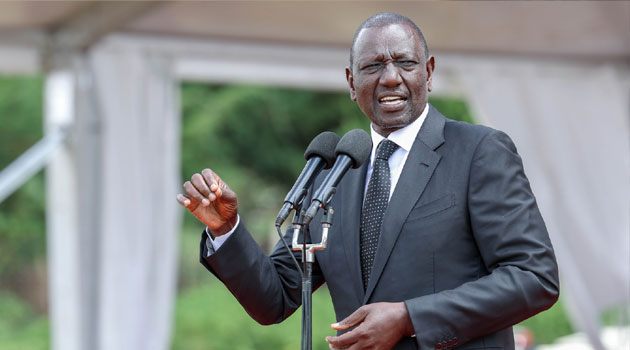
Ruto says Kenya ready to support Haiti’s newly sworn-in Transitional Presidential Council » Capital News
NAIROBI, Kenya, Apr 26 – President William Ruto has expressed Kenya’s readiness to spearhead the Multinational Security Support Mission in Haiti in collaboration with other partners.
This declaration follows the swearing-in ceremony of the Transitional Presidential Council (TPC) on Thursday.
Ruto indicated that the endorsement of the nine-member council, is a crucial step in the political transition in Haiti, which continues to be gripped by gang violence.
The President expressed Kenya’s commitment to “fully support” the TPC as it embarks on efforts to restore order in the Caribbean nation, where the understaffed and under-resourced security agencies have been battling the gangs that have seized control of much of Haiti’s capital, Port-au-Prince.
“In implementing the road-map contained in this political accord, Kenya stands ready and willing—in concert with a broad alliance of nations in Africa and CARICOM—to rapidly execute the security support infrastructure envisaged under UN Security Council 2699 (2023), Ruto said Thursday.
The swearing in of the council, which will be led by Michel Patrick Boisvert, formalized the resignation of former Prime Minister Ariel Henry.
Haiti has been grappling with a surge in violence since the assassination of President Jovenel Moïse in July 2021 at his private residence in the capital, Port-au-Prince, triggering calls for a security intervention.
In October last year, the United Nations Security Council gave Kenya the go-ahead to lead a multi-national security force to violence-hit Haiti.
However, the move suffered a setback after Kenya’s High Court in January blocked the deployment of Kenya Police units, terming it unconstitutional.
High Court Judge Chacha Mwita said in a ruling that any peace mission outside the country can only be assigned to the Kenya Defence Forces (KDF).
Mwita explained that Sections 107, 108, and 109 of the National Police Act limit the deployment of police officers outside the country to reciprocal arrangements between Kenya and other countries.
However, on March 1, Kenya finalized the deployment of a 1,000-strong police unit to Haiti after signing an agreement with the Caribbean nation following a directive by the court.
The Haitian PM at the time, Ariel Henry, signed the deal in Nairobi but resigned days later following escalating violence that jeopardized his planned return to Haiti.
CARICOM has welcomed the formal installation of the Transitional Presidential Council, saying it marks a significant achievement through a process driven by Haitians in the interest of Haiti.
Further CARICOM said the move represents a critical step forward for both the Council and the Haitian people in addressing “the protracted multidimensional crisis afflicting the country.”
“This is an opportunity to craft a new beginning which will give all Haitians renewed hope for a return to constitutional government, stability and sustained development,” CARICOM said Thursday.
